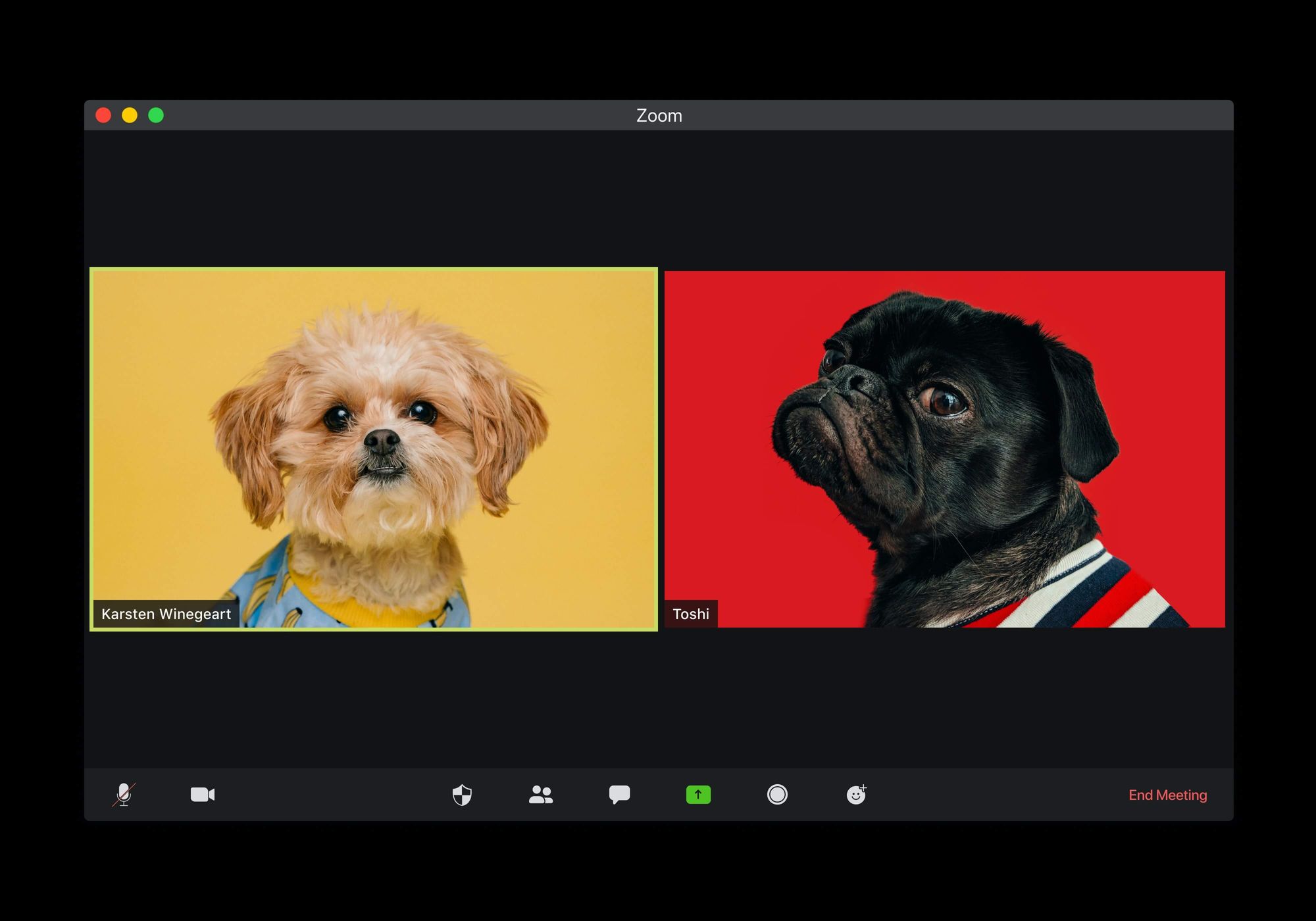Remote and hybrid work has become a norm, with many marketing teams now fully or partially distributed - including our own at The Alliance! And while this provides many benefits like accessing talent globally, it also requires a lot of thought into building a productive remote team culture so that everyone feels heard and included.
In this article, we’re going to dive right into the important parts of building and managing a remote marketing team, including:
- Finding the right remote marketing talent
- Building rapport among a distributed team
- Managing work and productivity remotely
- Providing meaningful remote employee support
- Key takeaways/TL;DR
Finding the right remote marketing talent
You can’t manage a remote team without finding the right people to be in it. It’s important to find those that fit the culture you’re working in so there aren’t clashes in the way you all want to work.
This isn’t to say that you must hire the exact same people within your team, but you want a team that compliments each other in both personality and work ethic so that everyone is on the same page and also feels motivated to work together to meet shared goals.
Cindy Yip, Senior Director of Education Marketing and Content at The Alliance said:
“When building and recruiting for a team that's entirely or mostly remote, in my opinion, it's more important to hire for culture add than skill fit, this is more true for junior than senior roles.
“Culture fit can insinuate you're hiring carbon copies of people who act and behave in the same way but culture add means they not only fit the fundamental elements of your culture but also bring their own individual perspectives and personality that can bring innovation and new ways of working.
“Essential skills such as channel marketing, copywriting, and understanding KPIs can be taught over time but hiring someone whose values and behaviors don't align with the company can be damaging to your team dynamics and, even worse, having a group of people who are all thinking the same thing means you end up stagnant with no one to challenge the ‘why’ of how you're doing things.”

Utilize remote-friendly hiring practices
If you’re hiring for any role, it makes sense to ensure the interview is as accessible as possible. But for remote working, it’s even more important to ensure this is the case.
After all, your future employee may be halfway across the globe and won’t be able to attend an in-person meeting - and why would you hinder a potential gold-star employee from joining your forces purely because the hiring practices you put in place weren’t accessible?
Remote-friendly hiring practices include:
- Writing inclusive job descriptions.
- Acquire talent from multiple channels.
- Video interviews and rolling out offers without in-person interviews.
- Work samples.
- Inducting new employees virtually.
- Maintain transparency in your job listing about the requirements and whether the job is remote.
- Including salaries that are competitive across multiple regions.

Look for self-starters that can work independently
When assembling a remote marketing team, it's crucial to find talent who can work independently and take initiative without constant oversight. Look for candidates who are self-motivated and can set and accomplish goals proactively.
Ask questions during interviews that assess how they’ve driven projects forward and made decisions with autonomy in past roles. Self-starters will thrive in the remote setting where they must manage their own time and priorities.
Adam Bennett, Content Manager at The Alliance, emphasizes the importance of allowing your team to work independently to boost productivity. He said:
“There are so many important aspects to building and managing a successful remote content marketing team. Having the right tools to stay connected and organized, as well as setting clear expectations and lines of communication are all up there.
“But the most important one for me is how we empower autonomy at The Alliance. We ensure our content leads and associates have control and ownership over their workload and projects, giving them the freedom to manage their tasks and responsibilities independently. Micromanagement can hinder productivity and erode trust. Instead, we focus on outcomes and results.”
What Adam said links in perfectly with this point - hire employees who can work independently, and don’t require that constant hands-on help, but also when it comes to managing them once hired, actually allowing them to have the autonomy to get on with their workload can have a vast amount of benefits for both you, your employees, and the company overall.
Assess both hard skills and soft skills
In addition to marketing hard skills, prioritize evaluating soft skills like clear communication when interviewing remote candidates. Strong written and verbal communication abilities are essential since collaboration will happen virtually on a distributed team.
Look for concise and organized writing samples. Discuss past experience working cross-functionally via digital channels. Even have candidates do a video call interview to directly assess interpersonal skills. Hiring remote marketers with outstanding communication talents will pay dividends.
Be open to talent from anywhere, not just your headquarters location
A benefit of building a remote marketing team is the ability to source talent from anywhere, rather than just where your headquarters are based. Marketers may live across different cities, states, or even different countries and continents. This allows for greater team diversity, different perspectives, different market insights, fresh new ideas, and so much more.
Conduct a worldwide search for the best individuals for each role and be open to hiring and onboarding team members residing in different places.
Also, ensure collaboration tools and processes account for different time zones. Accessing a global talent pool allows you to assemble a high-caliber distributed marketing squad.

Building rapport among a distributed team
When you've got folks working remotely across different offices or locations, it's really important to help them get to know each other and feel like a team. Doing little things to connect distributed employees pays off big time for a company's revenue.
How come? Well, when people have good working relationships and a sense of community, they collaborate better. They're more creative, more motivated, more productive.
So, something as simple as regular video check-ins allows team members to chat face-to-face and build trust. Having a fun informal chat channel gives people a space to interact casually and deepen connections.
Also, think about paying for everyone to travel to regular offsites or sending little care packages to give distributed folks a sense of belonging to the organization.
The bottom line is, when you nurture rapport among distributed teams, you see the benefits with better work and better results.
Employees feel happier, more supported, and more invested in the company mission. And that directly translates to your bottom line. So it's well worth the effort to foster bonds and cohesion across distributed teams. The payoff can be huge.
Huw Darch, Senior Marketing Manager at The Alliance, gave his top advice for managing a remote marketing team:
“I think it's super important to try and bring the relationships that you would likely develop much easier in an office environment where you're all working in the same location, to the virtual world. It can be so easy to simply work on a transactional basis with a remote marketing team, or any remote team for that matter.
“Taking the time in team meetings to get to know each other on a more personal level, fosters great working relationships where the team aren't afraid to challenge each other, because they have that baseline trust, built on a relationship that is stronger than just work.”

Our CMO, Bryony Pearce, said:
"I think it's about being more intentional than usual when it comes to bringing everyone together and communicating async, and there are a few things we as a team and I as individuals do to try and achieve this.
"For example, 2x a year all 20+ of us will meet in person, every week we get together as a team for a 20-minute data-sharing huddle (individual sub-teams also meet weekly), and we endeavor to have monthly socials.
"In terms of async communication, sometimes, it really is the small things that matter. Every day in our marketing channel we say 'morning' to each other to imitate what you'd do if you walked into your office, every now and then we get folks sharing pics of their morning routine/what they did over the weekend kind of thing which adds a nice touch.
"And then it's also small things like wishing everyone a great long weekend if it's a bank holiday, asking people what their plans are, etc. - it sounds small, but it all mounts up."

Managing work and productivity remotely
When your marketing team is fully remote, you've got to have solid systems in place to make sure everyone stays productive. It's key to driving revenue.
Think about things like:
- Using project management software where team members can track assignments and deadlines to keep all the workstreams moving forward smoothly.
- Implementing regular check-ins on progress to let you catch any issues early.
- Setting clear OKRs and objectives to ensure alignment across the team.
- Monitoring productivity based on the work output and communication quality - not physical oversight.
- Embracing tools like email, chat, and async communication in addition to real-time meetings.
James Shaw, Content Manager at The Alliance, emphasized the importance of transparency with data and performance within your team to build that trust and joint morale. He said:
“One of the keys to building a successful remote team is securing alignment, and instilling transparency, around our key goals and aspirations. An important factor in achieving this data; ensuring that everyone has access to the same reports and numbers, so no one is left in the dark regarding how we’re performing as a team, and what we need to do to meet our targets.
“It’s important that everyone feels part of the journey — and is able to visualize and quantify their personal impact on the business. Building solid reporting processes is an important, yet often overlooked, aspect of building a cohesive operation in which everyone feels they are playing a role and having a tangible impact.”

All in all, with the right structures in place to manage remote workflows, your marketing team can execute at peak levels without you hovering over their shoulders in the office. Everything stays on track, campaigns hum along, and your hardworking marketers will hit those revenue goals.
Top tip: Don't fret about a remote marketing team. Instead, set them up for success with solid systems to stay organized and connected. You'll be amazed at what they can accomplish!

Providing meaningful remote employee support
When you've got team members working remotely, it's super important to make sure they feel supported and engaged. This really pays off big time for driving revenue.
- You want to encourage a healthy work/life balance - don't expect constant availability.
- Provide opportunities for remote folks to grow through training and mentorship.
- Foster social connections with remote happy hours or activities.
- Make sure compensation and benefits are equitable for remote staff.
When remote employees feel empowered through flexibility, career development, community, and fair rewards - they're just more motivated and productive. They feel invested in the company's success. That means better work outputs and real contributions to revenue growth.
The time spent looking after your remote team members' well-being and career progression is so worth it. You end up with a killer workforce that's thriving - not just getting by. They'll give you their best effort and stick around for longer.
Cindy Yip, Senior Director of Education Marketing and Content at The Alliance said:
“When managing a remote team, there are 3 things I try not to neglect.
“Firstly, is making sure there's scheduled time for check-in with team members, both as a team and with a line manager. As many benefits as there are to working remotely, it can understandably be lonely for people, especially for those who don't have many meetings and/or live alone.
“Having a scheduled time to catch up and exchange pleasantries creates a virtual point for people to have some kind of human connection and connect with colleagues. In the marketing and content team, we have monthly socials that allow us to figuratively let our hair down for an hour and have time to connect outside of project-based work.
“Scheduled catch-ups with line managers give the opportunity to voice any concerns around workload, morale, and motivation which is a lot harder to spot virtually than IRL. Low morale can spread like wildfire and be a productivity killer if not dealt with as early as possible.
“Tip within a tip: try and encourage everyone to have their camera on as it's never fun talking to a black screen and not knowing if someone is engaged.
“Secondly is to ensure everyone knows what the team’s shared goal is, how their individual goal contributes to this, and to ensure there's a transparent and consistent way of tracking so everyone has one single shared source of truth and is on the same wavelength of if things are going well or not.
“Ultimately everyone needs to be clear on what the north star metrics are and be talking about it regularly to keep it front of mind. Working remotely means tasks can more easily be deprioritized or forgotten about when you're in and out of virtual meetings so making sure there's somewhere to log and view tasks as a team as you go such as Asana is also important.
“Finally (and maybe a cheesy one) is to lead with compassion and empathy, and emphasize a virtual open-door policy.
"It may be obvious that your team should reach out to you should they need anything but I’ve spoken to many people who feel as if they're bothering me and let a question linger in their minds too long. It's important to emphasize to team members they can contact you when they need support (and you'll get back to them ASAP).
“At the same time, it's so important to be a human being and show compassion should a team approach you with a work or personal difficulty. Taking time to support them as you would a friend and, if needs be, using your position as leader to give them flexibility (to visit a sick relative or look after a sick child for example) can help build psychological safety creating more engaged and motivated employees.”
So go the extra mile for your remote staff. Keep them engaged, supported, and growing. You'll see the benefits big time on that bottom line.
Key takeaways/TL;DR
In summary, there are four things you need to remember when building and managing a remote revenue marketing team:
- Hire intentionally: Seek out those who can work autonomously and communicate proactively. Assess for skills beyond just marketing capabilities.
- Connect frequently: Make time for regular video check-ins, both formally and informally. Create opportunities for remote social interactions. Communicate often through a variety of channels.
- Manage transparently: Use project management tools for clear workflows and tracking. Set clear objectives and key results. Monitor output not physical oversight. Embrace asynchronous communication.
- Support holistically: Promote work/life balance and well-being. Offer development opportunities and career growth. Ensure equitable compensation and benefits.
The future is undoubtedly distributed. By hiring the right people, keeping connected, managing effectively, and supporting completely, you can build flourishing marketing teams that drive revenue, no matter where they're located. The keys are intentionality and commitment to keeping remote staff thriving across the board.



 Follow us on LinkedIn
Follow us on LinkedIn




